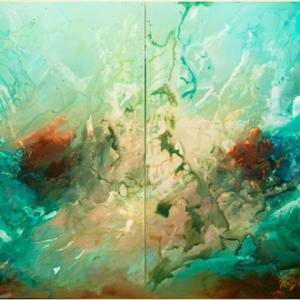
Arquivo para July 24th, 2024
The idealistic religion
Among the Young Hegelians, those who along with Marx criticized the “old Hegelians”, especially David Strauss and Bruno Bauer, was Ludwig Andres Feuerbach (1804-1821) much better known for Karl Marx’s “Theses on Feuerbach” than for his own work, but his concepts, although criticized by Marx, also influenced him in addition to the other “new Hegelians” also known as the “Hegelian left”.
with Marx criticized the “old Hegelians”, especially David Strauss and Bruno Bauer, was Ludwig Andres Feuerbach (1804-1821) much better known for Karl Marx’s “Theses on Feuerbach” than for his own work, but his concepts, although criticized by Marx, also influenced him in addition to the other “new Hegelians” also known as the “Hegelian left”.
Feuerbach, coming from a Catholic environment, was educated in Protestantism, from a young age he was oriented towards religion, beginning his studies at the University of Heidelberg, but upon meeting Friedrich Hegel, he abandoned theology and became a student of this philosopher for two years, which provoked profound changes in his thinking and creates what I call here “idealistic religion”, but the God of Christianity is no longer Feuerbach’s god.
Hegel’s idea of the absolute is well known, where his “in itself” which is his “one” is not alienated from matter to finally emerge as “Absolute Spirit”, but man, as a conscious species, is the infinite itself and absolute, being man’s reason for his “liberation” to the detriment of indoctrination or Christianization (Feuerbach, 2013, p. 2-23) this God that man “imagines” is for the young Hegelian now in fact his own being, its own essence, it is necessary to understand that Being for idealists is not ontological Being, but rather an “anthropological” being.
Thus, religiosity, in the idealist analysis, would not be linked to an immaterial being, which transcends the human (idealist transcendence is the knowledge of the object), it is not a timeless and creative Being, but nature itself, in another way Spinoza also explored this .
Thus Feuerbach understands that man’s relationship with his “god”, which is different from other “young Hegelians” (Marx will criticize him), his god or gods, is founded on his own ex-sistence, a subject also explored in ontology, but seen as a relationship with “time” or temporal being.
The idealistic god is the one that man externalizes “is nothing more than the divinized essence” (Feuerbach, 2009, p. 29), in a way even more so as “the history of religion is the history of man” (Feuerbach, 2009 , p. 30) and here lies the dividing line with Marx because he sees history as his “mode of production”, the relationship with work and the means of production to carry it out: feudalism, capitalism, etc. Thus Feuerbach understands that man’s relationship with the supersensible, which for him “exists”, that is, has its ex-sistence, is in fact an “aesthetic pathology”, an amalgamation of mystical feelings that are at the same time the foundation and promoter of religiosity. : “Mourning and pain at the death of a person or at the diminution of light and heat, joy at the birth of a person, at the return of light and heat after freezing winter days or at the harvest, terror at phenomena in themselves terrible or at the least in man’s imagination… (Feuerbach, 2009, p. 49). So the big mistake, even for “religious people”, is to separate substantiality from spirituality, which is, in our view, the essence of false contemporary asceticism.
Feuerbach, Ludwig. (2009) Preleções sobre a Essência da Religião. Trad. José da Silva Brandão. Petrópolis/RJ. Editora Vozes.
Feuerbach, Ludwig. (2013) A Essência do Cristianismo. Trad. José da Silva Brandão. Petrópolis/RJ. Editora Vozes.

